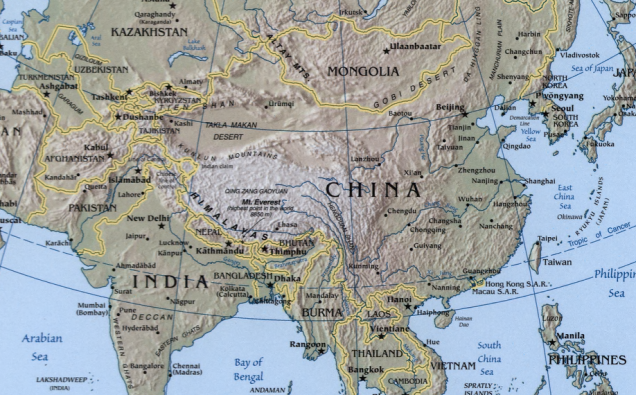
A prominent Sweden-based think tank has termed the China-Pakistan Economic Corridor – a network of infrastructure connecting China from Pakistan’s north all the way to the Gulf through Gwadar port in the southwest – as a major boost for stability and prosperity in Pakistan, at a time when the country seeks to recover from years of security challenges to achieve higher economic growth.
The report by Stockholm International Peace Research Institute (SIPRI) comes as Pakistan has asked India to join the massive $ 54 billion project, while New Delhi adamantly opposes it.
The CPEC – a project of Silk Road Economic Belt initiative – may become one of the cornerstones of Pakistan’s fastest economic growth a SIPRI report says.
The report notes that India’s opposition to the CPEC stems from its fear of internationalization of the Kashmir dispute and the growing influence of China in the Indian Ocean.
India fears that China, which has been neutral on Kashmir since 1963, can no longer be so now as its economic and security interests in these territories are growing its the stake in the region.
The report titled “Silk Road Economic Belt – Considering Security Implications and the EU-China Cooperation Prospects,” argues that India does not want a mediating role for China in these disputes. This is the first report by any global think tank that has discussed in detail the Indian concerns on the project.
The project has raised political temperatures in India and Pakistan, at a time when China, the world’s second largest economy, is looking to expand its influence, while India and Pakistan are both growing rapidly, and attracting massive foreign investments.
Kashmir, a UN-accepted international dispute has been a flashpoint between Pakistan and India, the two nuclear-armed neighbors. India does not want any third party mediation but last year’s killings of Kashmirs at the hands of Indian security forces drew a sharp rebuke from international organizations.
“India strictly opposes CPEC, and while the Economic Belt is not a harbinger of a new conflict, it has so far intensified historic competition over influence in South Asia,” note authors of the report.
The CPEC, which will help Beijing gain a much shorter and economical access to the Gulf oil – allows China to gain a toehold in the Indian Ocean through direct access to the Arabian Sea. But India fears that that this might develop a military dimension at some stage, according to the report.
“Since territorial compromise from either India or Pakistan is a political suicide for any of the ruling parties, it remains to be seen whether CPEC will contribute to a resolution of this dispute or further fan the flames.”
“There is also a concern in India that while CPEC in the short and medium term could be an opportunity to generate jobs and growth in Pakistan, over the longer term its strategic consequences could reshape the regional balance of power in favour of China and limit India’s geopolitical reach.”
The assertiveness and swiftness of Chinese actions in the South China Sea have implanted a preoccupation among China’s critics in India that if China gains a foothold in the Arabian Sea and, as an extension, in the Indian Ocean through Gwadar, it might make national interest claims in India’s maritime sphere too. “After all, if Gwadar grows to be the immense port China envisions it to become, China will need to take on a bigger direct or indirect security role,” the report says.
Importantly, the Sipri report assessment shows India is the only country that opposes the regional trade and energy initiative that has the promise to expand connectivity between regions including South Asia, Central Asia, the Gulf and beyond.
Unlike India, CPEC has not raised any concerns in Afghanistan.
Afghanistan is open to all regional initiatives that could reactivate its ailing formal economy, whether that is by way of CPEC or India-led efforts to connect with the Afghan economy through the Chabahar Port in Iran.
Iran, another key regional ccountry, has not opposed thee CPEC and has expressed strong interest in the Belt and Road Initiative.
















